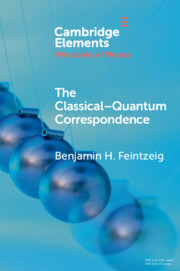Refine search
Actions for selected content:
2 results

The Classical–Quantum Correspondence
-
- Published online:
- 16 December 2022
- Print publication:
- 19 January 2023
-
- Element
- Export citation
On quasi-classical limits of DQ-algebroids
- Part of
-
- Journal:
- Compositio Mathematica / Volume 153 / Issue 1 / January 2017
- Published online by Cambridge University Press:
- 19 January 2017, pp. 41-67
- Print publication:
- January 2017
-
- Article
- Export citation
